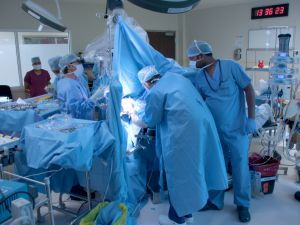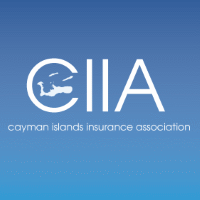(CNS Local Life): In a first for the English-speaking Caribbean, neurosurgeons at Health City Cayman Islands (HCCI) surgically removing part of a brain tumour while the patient was awake. The procedure – known as awake craniotomy or awake brain surgery – enables the surgeons to remove, partly or fully, tumours from the brain that would otherwise carry high risk of damage to important functions of the brain.
A resident of the Cayman Islands was referred by his primary care physician to Dr Romnesh de Souza, interventional neurologist at HCCI, on suspicion of a stroke. The patient had been experiencing numbness on the right side of the body for several months, including loss of control of his arm and hand for a few seconds at a time. Further tests revealed, however, that there was a tumour on the left side of his brain, which affected the right side of his body and was causing him multiple seizures. The tumour, while not aggressively malignant, was in a location where further growth would result in the loss of speech and motor skills.
Dr de Souza explained that the patient’s occupation involved working with fine instruments requiring a great degree of precision and dexterity. This presented a challenge to the neurosurgical team, led by Dr Susheel Wadhwa, who was keen not to damage surrounding parts of the brain that control motor skills and other functions, such as language, during the surgery.
The patient explained the importance of maintaining that dexterity. “For me it’s my livelihood, and to have those motor skills, it is extremely important for everybody, but especially my profession where I work with the smallest of pieces, being a watchmaker.”
Dr Wadhwa said that awake craniotomy allows surgeons to remove tumours in delicate or important areas of the brain while monitoring and preserving the function of the surrounding normal areas. He said the brain “was like a switchboard which controlled specific functions” such as speech and facial expressions. Conventional neurosurgery performed under general anesthesia, to treat tumours in these areas, takes away the ability to monitor function during surgery and could result in a significant loss of function.
Awake surgery, added Dr Wadhwa, was particularly valuable because by interacting with a patient who was awake, “you knew you were not damaging normal tissue”.
The procedure is performed after the patient’s scalp is numbed with local anaesthetic and usually with the patient sedated at the beginning and end of the procedure, but awake in the middle. Throughout the operation, Dr Wadhwa and his team were guided by monitoring the patient’s responses to verbal and motor commands.
Early diagnosis and removal of the tumour was important, said Dr Wadhwa, who explained that different parts of the brain would be affected if the tumour were allowed to grow, “so by decompressing the tumour, we save normal and important areas of the brain. It also gives an opportunity to safely biopsy the tumour to understand its exact nature and plan further therapy.”
The patient was grateful for the speed with which he was diagnosed and treated. “The great thing was that within an hour, the doctor was available,” he said. “I came in and had an MRI right away. And they knew what it was within hours…Dr Susheel was here as well, and within less than a minute, he knew what to do and that made me feel really comfortable.”
The surgery removed a significant portion of the tumour, and during the patient’s last follow-up appointment it was found to have not grown further. The patient will require brain scans every three months for the next year to monitor the status of the tumour and is following up with regular visits with Dr Wadhwa, He also has a regular schedule of appointments with Dr de Souza to monitor and control his seizures.
The patient says his recovery has gone remarkably well. “Every day there was a big step forward, and it took maybe three weeks” to recover fully, he added.
Now, after surgery in May, the patient has returned to work and feels completely back to normal. “It has been over three months, and now I feel really good, it’s almost as if I never had an operation…I am still having a hard time to see it as a major surgery, since I am feeling really good and I am back to where I was before…It’s a lovely future. Life is good,” he said.
This complex surgery involved an experienced team of neurosurgeons, nurses, technicians and anesthesiologists. “This is the first operation of this nature at Health City,” Dr Wadhwa said. “But fortunately for us, we had the entire team. Right from the technicians to the nurses to the anaesthetists to the surgical team, it was the same team which was performing these surgeries in India, and so the surgery could be carried out smoothly.”
Caption: Health City doctors performing the awake brain surgery



